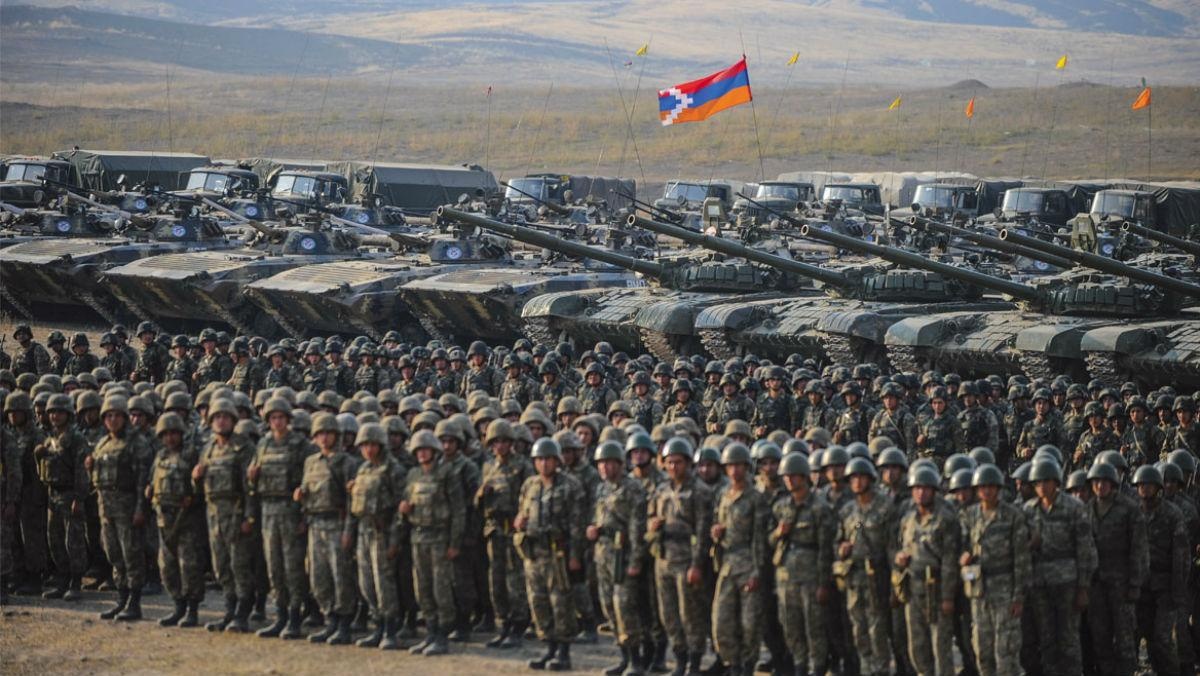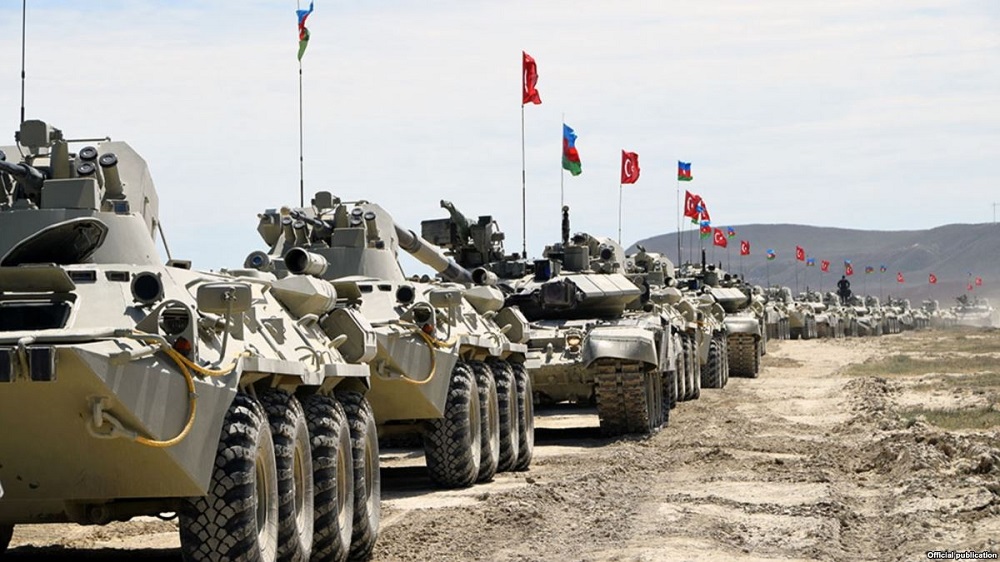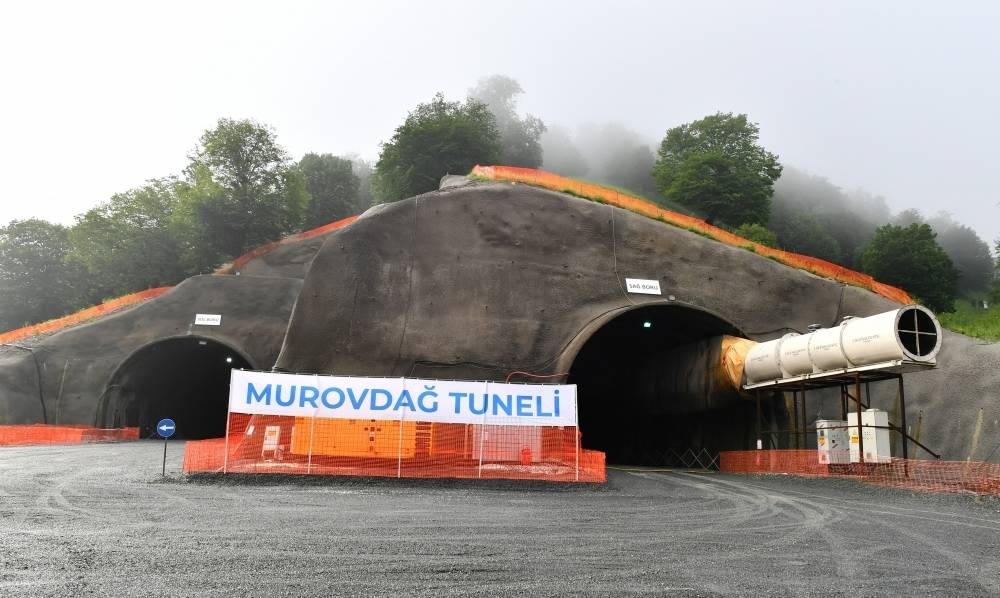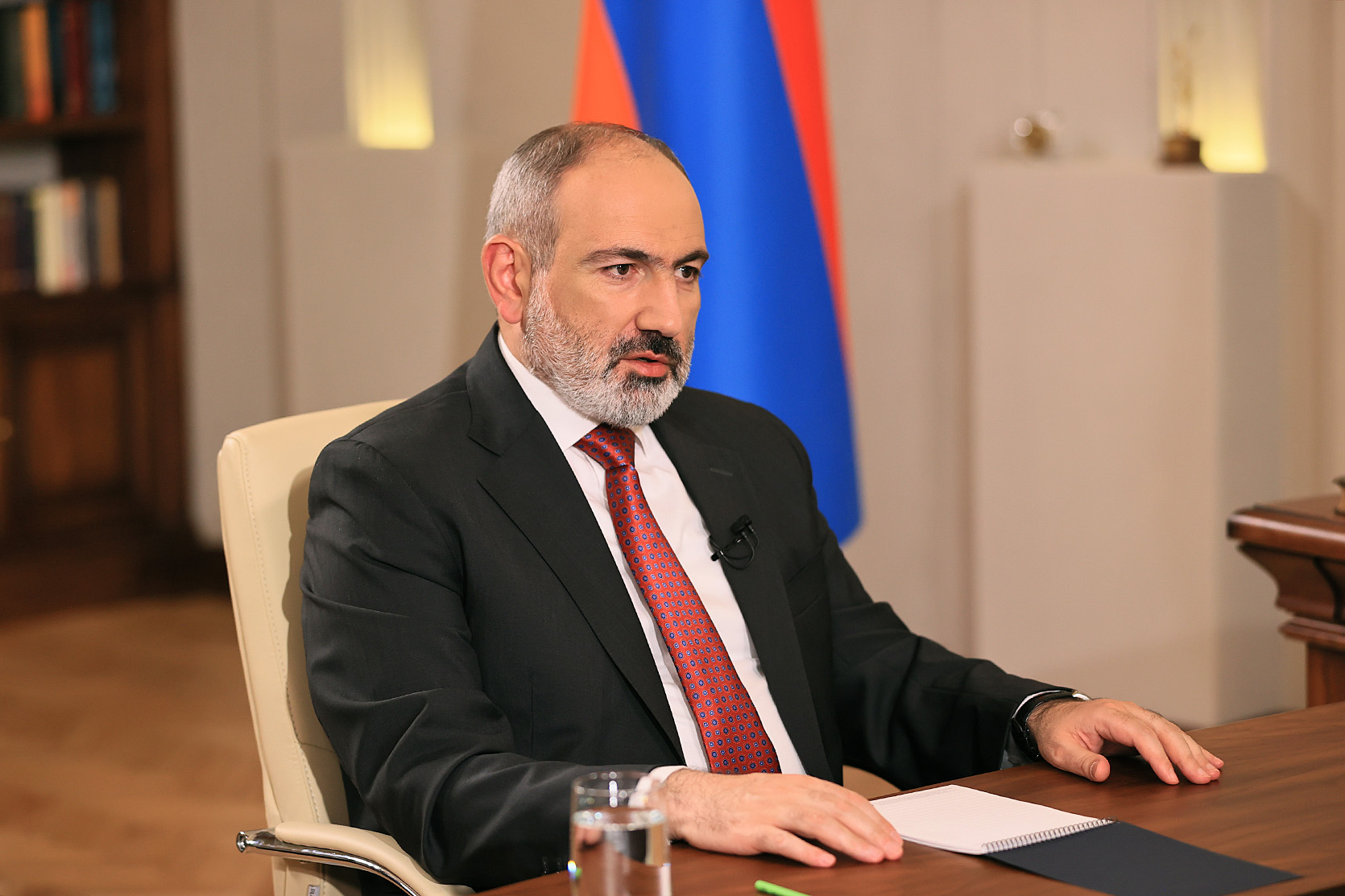“No one is ready to lighten Russia's burden”: on the Russian peacekeeper mandate in Nagorno-Karabakh
Give peacekeepers an international mandate
Protests were held in Yerevan in front of the Russian and French embassies. Participants were those who have lost their homes in Nagorno-Karabakh and now live in Armenia. They demanded that Russian peacekeepers fulfill their obligations in NK. Without waiting for a response from the Russian embassy, the protesters went to the French embassy. Here they asked the government of France to send peacekeepers of their own to Nagorno-Karabakh.
The protests were preceded by a statement by the Prime Minister of Armenia. A day prior, Nikol Pashinyan said it is necessary to clarify the details of the peacekeeping mission in Nagorno-Karabakh. He added that if the signatures of Armenia and Russia are not enough to fulfill the mandate, then “it is necessary to take measures to establish this mandate at the international level or to endow the peacekeepers with a broader international mandate.”
Political observer Hakob Badalyan believes that Pashinyan’s statement was a call on international actors to declare themselves ready to take on a specific responsibility.
Read more about the protests in Yerevan, the Kremlin’s reaction to Pashinyan’s latest statement, an explanation from the ruling party of Armenia about what it meant, and an expert’s comments.
- “Pretext for escalation”: Pashinyan on Baku’s actions and intentions
- Renewed tension in Nagorno-Karabakh: Yerevan and Baku report
- Shelling in Karabakh and gunfire at the Armenian-Azerbaijani border. What’s happening? Opinions from Yerevan
“We ask the French government to send in peacekeeping forces”
A group of internally displaced people from Nagorno-Karabakh organized a protest in front of the Russian embassy with a banner reading “Russia, fulfill your mission.” Their only demand was that peacekeepers stationed in NK fulfill their obligations. But no one came out to meet them.
From the Russian embassy, the protesters went on to the French embassy.
“As a co-chair and a democratic country, France has repeatedly spoken out in support of the right of the Armenians of Nagorno-Karabakh to self-determination. We ask the French government to send in a peacekeeping force,” the protesters said.
An employee of the French embassy came out and took a letter with the same message.
Moscow “has not yet seen” Yerevan’s proposals
Russian Foreign Minister Sergei Lavrov told reporters that Moscow does not yet know what “concrete proposals” the Armenian prime minister wants to discuss as far as the Russian peacekeeping operation in Nagorno-Karabakh. He stated:
“I can’t guess right now. Any of the signatory parties, of course, has the right to propose additional initiatives. We have to see them first.”
On August 4, the Prime Minister of Armenia recalled events that have taken place in Nagorno-Karabakh since November 2020 “in the presence and with the connivance of Russian peacekeepers.” Specifically, the violation of the ceasefire by Azerbaijan, and the capture of Armenian military personnel and territory.
Pashinyan stressed that there are “issues related to the purpose and essence of the peacekeeping operation.” He said also that there’d been a need to clarify this from the very beginning, but “Azerbaijan interfered with this process by refusing to sign the mandate of the peacekeeping forces in Nagorno-Karabakh.”
The press secretary of the Russian president also reacted to the Armenian prime minister criticism. Dmitry Peskov said it is important to fulfill all the obligations that the parties have assumed:
“If there are questions, they must be answered. At the same time, we have close contacts with the Armenian side at various levels, which will help clarify existing issues.”
“Pashinyan criticized not Russia, but peacekeepers”
Yerevan has not yet responded to statements from Moscow. As yet, there is only a comment from Vigen Khachatryan, a deputy from the ruling Civil Contract party. He maintained that the prime minister was not criticizing Russia, but the actions or rather inaction of the peacekeepers:
“We want Russia to fulfill its obligations and clarify whether the behavior of the peacekeepers is justified by Russian policy or whether there is a contradiction here.”
Commentary
Political observer Hakob Badalyan sees no prospect of changing the Russian peacekeeping forces and their mandate. He says this isn’t possible for the following reasons:
- Russia will not voluntarily renounce the mandate,
- none of the major actors has a geopolitical interest in leading Russia out of this difficult situation or in helping fulfill the mandate more effectively.
According to Badalyan, Russia will not voluntarily renounce the mandate, since the military presence in Nagorno-Karabakh is a matter of strategic importance to Moscow.
“Another thing is that over time Russia may find itself in such a geopolitical position, face such complex problems that it will have to consider the possibility of leaving Artsakh. And this will practically be tantamount to leaving the Caucasus,” he said, commenting on the issue at the request of JAMnews.
The expert emphasizes that this can only happen if “some kind of radical changes” occur.
Geopolitical quid pro quo
According to Badalyan, no one is ready to lighten Russia’s mandate:
“They will consider this prospect only if Russia comes to an agreement with the international community or the West – that is, if it makes some agreements or concessions on more important issues.”
He holds that Russian peacekeepers must quell Azerbaijani aggression in their area of responsibility, which is not happening. Therefore, Yerevan has called for the “establishment of a mandate at the international level”, that is, the possibility of attracting international mechanisms.
“If the current peacekeeping mandate exposes Artsakh to Azerbaijani aggression or a possible Russian-Azerbaijani deal, then Yerevan should think about other mechanisms for its security,” says Badalyan.
He emphasizes that only the OSCE Minsk Group has an international mandate to resolve the Karabakh problem.
In Badalyan’s view, Pashinyan’s statement was a message to international actors to say whether they are ready to take this responsibility on.
On the other hand, he notes that today there is no possibility of making decisions without working with Russia:
“If there is any other participation, it can only be after an agreement with Russia.”
Badalyan believes that Armenia could try to find points of contact between Russia and the West in order to improvesecurity in NK. According to him, Yerevan really has no other choice:
“It is also obvious that relying only on Russian peacekeepers and their potential is ineffective and involves significant risks.”
Nor does he exclude the possibility that Pashinyan’s statement expressed sentiments that emerged during contacts with Russia:
“It is possible that the willingness of Russia to discuss with the West some options for cooperation on the Artsakh issue was transmitted through Yerevan.”
According to Hakob Badalyan, Moscow’s task is to retain the peacekeeping mandate. And for this, if necessary, Russia will make a deal with Azerbaijan and Turkey, even creating local risks, such as border provocations. And, although these risks are very painful for Armenia, they of course do not pose a strategic threat to Moscow, the expert says.
Give peacekeepers an international mandate






















